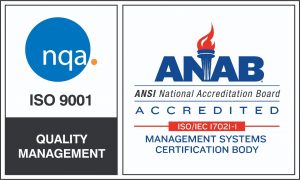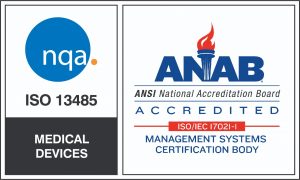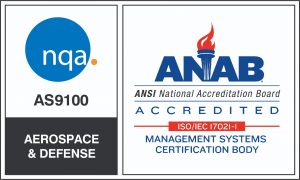 Contract manufacturing enables organizations to produce products without the large expense of machinery and technology or the operating costs associated with manufacturing. While contract manufacturing offers numerous benefits to companies across a wide range of industries, there are significant benefits for the medical equipment and device segment.
Contract manufacturing enables organizations to produce products without the large expense of machinery and technology or the operating costs associated with manufacturing. While contract manufacturing offers numerous benefits to companies across a wide range of industries, there are significant benefits for the medical equipment and device segment.
Strict requirements and the need for machinery capable of creating precision-dependent products often creates a barrier for organizations wishing to enter the medical device industry. These same factors cause many OEMs to leave the market as well. Organizations could benefit from utilizing the help of an experienced medical device contract manufacturer.
Hiring a contract manufacturer allows OEMs to spend less capital, hire fewer employees, spend less time and effort on quality control, and eliminate purchasing hassles. The contract manufacturer handles procurement, production, and testing, allowing the OEM to focus on other important aspects of their business.
Organizations wishing to hire a contract manufacturer should consider it as they would any other long-term business relationship. Before selecting a CM, it’s important to gather as much information as possible.
Selecting a Contract Manufacturer
OEMs should take care to ensure they fully understand the capabilities, strengths, weaknesses, and experience of the contract manufacturer they choose. It’s highly suggested that OEMs develop a list of questions prior to contacting and interviewing each CM. It might also be beneficial for the OEM to contact some of the CM’s customers for feedback.
Process Development
After selecting a contract manufacturer, the development process begins. If this is an existing product being transferred from the OEM, all existing work instructions and raw material sources get shared with the CM at this point. During a series of “knowledge transfer” meetings, the OEM and their staff provide as much information as possible about the manufacturing process. These meetings shouldn’t just include engineers and operators, assembly workers with experience creating the part should be involved as well.
For new products, the contract manufacturer will need to develop the manufacturing process and supply chain. However, it’s still important for the OEM to provide input and knowledge as necessary.
Training & Process Qualification
Once the process is defined, operator training and qualifications begin. Regardless of the type of product, there are standards and optimum processes to adhere to. This is especially true when producing medical devices. These devices face some of the strictest quality standards.
Pilot Builds
The pilot build allows OEMs and contract manufacturers to locate areas that could benefit from improvement. This is the stage when the OEM or CM makes adjustments to the work flows and/or the work instructions.
Entering the Production Phase
Following the pilot build, the CM begins production of the product. It’s crucial that OEMs provide an accurate demand forecast at this point. This helps the CM determine raw material procurement schedules and reorder points.
Means Engineering provides contract manufacturing services for the medical device industry. Please contact us for details.
 Entrepreneurs face many challenges when starting a business. In addition to figuring out how to properly market and brand their business, they must also determine how to bring new products to market. Obtaining office space and hiring and training marketing personnel and office management takes up a significant portion of a start-up’s budget, leaving very little to produce prototypes. Unfortunately, it’s not likely that a start-up will receive funding without a tangible product that investors can see and touch.
Entrepreneurs face many challenges when starting a business. In addition to figuring out how to properly market and brand their business, they must also determine how to bring new products to market. Obtaining office space and hiring and training marketing personnel and office management takes up a significant portion of a start-up’s budget, leaving very little to produce prototypes. Unfortunately, it’s not likely that a start-up will receive funding without a tangible product that investors can see and touch. Many OEMs struggle to achieve redundancy in their supply chain while keeping costs low. Unfortunately, redundancy can cost organizations a lot of time, money, and resources. Focusing on redundancy distracts teams from other important tasks, often delaying important development milestones.
Many OEMs struggle to achieve redundancy in their supply chain while keeping costs low. Unfortunately, redundancy can cost organizations a lot of time, money, and resources. Focusing on redundancy distracts teams from other important tasks, often delaying important development milestones. You have many things to consider when choosing an electronics contract manufacturer. Although you’ll probably spend some time negotiating price and other important aspects of your contract, electronic manufacturing certifications should remain non-negotiable. These important industry certifications ensure the CM you work with meets rigorous quality expectations as required by the industries they serve. Without proper certification, the CM simply cannot guarantee quality or that the product produced meets industry-specific regulatory compliance standards.
You have many things to consider when choosing an electronics contract manufacturer. Although you’ll probably spend some time negotiating price and other important aspects of your contract, electronic manufacturing certifications should remain non-negotiable. These important industry certifications ensure the CM you work with meets rigorous quality expectations as required by the industries they serve. Without proper certification, the CM simply cannot guarantee quality or that the product produced meets industry-specific regulatory compliance standards. For organizations that produce or manufacture products, outsourcing provides numerous benefits. In addition to reducing costs and time to market, outsourcing part or all of production can significantly increase the quality of products produced. However, it’s extremely important that organizations make an informed decision when choosing to outsource.
For organizations that produce or manufacture products, outsourcing provides numerous benefits. In addition to reducing costs and time to market, outsourcing part or all of production can significantly increase the quality of products produced. However, it’s extremely important that organizations make an informed decision when choosing to outsource.

